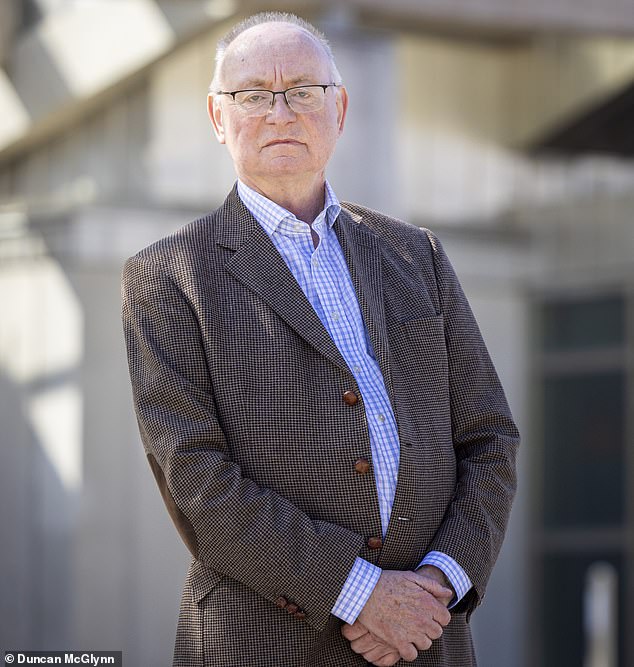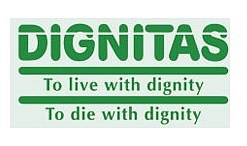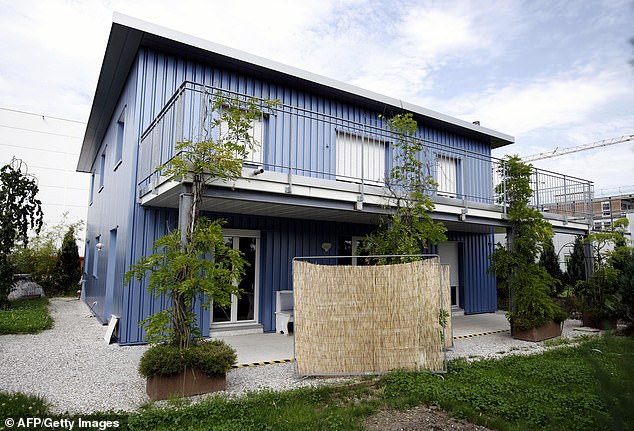A pensioner who was given a devastating terminal diagnosis and booked himself into Dignitas – before discovering he actually had a treatable condition – will warn MSPs against pushing through an Assisted Dying Bill.
Retired journalist Peter Sefton-Williams, 72, was given six months to live by two top London specialists who diagnosed him with Motor Neurone Disease (MND) last year.
Wracked with fear and under the impression he was to die a slow and painful death characterised by muscle wastage and eventually the inability to swallow or breathe unaided, he booked himself into the Swiss end of life clinic.
Yet, as the months waiting for his Dignitas appointment progressed, his illness did not. Unsettled, he cancelled his visit and underwent a number of further tests.
Mr Sefton-Williams learned he was actually suffering from a mild and completely treatable autoimmune condition called Multifocal Motor Neuropathy and was not, in fact, dying.
Now, he is warning MSPs not to vote through Holyrood legislation that would make it easier for patients to end their own lives in the wake of a terminal diagnosis.
Ahead of meeting with parliamentarians today [FRI] and a likely vote on the issue next month, he said: ‘If MSPs go ahead with this bill, they have to accept that people will die unnecessarily. There will be mistakes and people will die. So is it worth it?

Peter Sefton-Williams, 72, was given six months to live by two top London specialists but later discovered he was actually suffering from a curable condition

Switzerland-based Dignitas offer people with terminal illnesses the chance to end their own lives
‘Do you just shrug your shoulders and say, “Well, that’s life, mistakes happen”? Because mistakes are going to happen, and I’m living proof of that.’
Supporters of the Assisted Dying (Scotland) Bill brought forward by Scottish Liberal Democrat Liam McArthur hope the legislation will give those suffering terminal illnesses dignity in death.
But critics believe it is fraught with loopholes and could see people’s lives cut short by the NHS.
Disability campaigners have raised concerns a knock-on effect of the Bill would see disabled patients ending their lives due to insufficient support from cash-strapped and overstretched public bodies.
Meanwhile others have highlighted the loose wording of the legislation could see those who stand a chance of recovery dying prematurely.
For an assisted death to go ahead under the legislation, diagnoses would be needed from two doctors.
But Mr Sefton-Williams, who lives in Kent, said his own experience proved that could not be trusted adding: ‘The lesson is that doctors make mistakes. Doctors quite frequently make mistakes.’
The former energy reporter’s ordeal began at the end of 2023, when he noticed muscle weakness in his hands and began twitching.
An active member of his local community and practising Catholic, he booked himself in to a Harley Street specialist in London in the hope he could find some relief.
He was crushed to hear he had just months to live, as he was suffering, the doctor said, from MND, a progressive disease that he knew to bring a ‘fearful’ and ‘devastating’ end.
‘I thought, I can’t face this. I just can’t face this,’ he told The Mail last night.
Within hours of being handed the news he called Dignitas in Switzerland, believing he was destined to join a number of other Britons with the disease who have chosen to attend the clinic to cut short their symptoms.
He added: ‘With MND you lose the use of your muscles and you have to press the button yourself to administer the poisons, and so I thought, well, I can’t leave it too late.’
However, the worsening symptoms he was warned about never seemed to materialise and by the autumn even a specialist admitted it was ‘really rather unusual’.
After cancelling his Dignitas appointment, and following further nerve electrical conductivity tests, it was found he had the very rare autoimmune condition, which comes with symptoms that mimic the early stages of MND.
He said: ‘For nine months of my life, it was like standing in front of a firing squad just waiting for the moment when I was going to die.

The building of the assisted suicide clinic, Dignitas, in Pfaeffikon near Zurich
‘And then they just announced they had changed their minds.’
He continued: ‘I realised how close I had come to taking action. I had two doctors tell me that I had MND, two very eminent specialists, and also that I could have between two months and six months to live.
‘But nobody dies of what I have. It’s not a terminal illness at all.’
Mr Sefton-Williams, who is starting treatment for the condition in the coming weeks, continued: ‘The idea that I could have done that [ended my life] is absolutely horrific and the thing that most disturbs me is that nobody would have known.
‘What people would have said is, “Peter took a brave decision. He wished to die with dignity, and that’s what he did,” and everyone would be satisfied that it had been a good outcome.
‘That’s what the world would think. But it wouldn’t have been a good outcome. I would have died unnecessarily.’
Mr Sefton-Williams is so concerned about the Holyrood Bill that he yesterday travelled to Scotland to meet with MSPs to share his experience. He will meet them today [FRI].
He said: ‘The people promoting these end of life Bills, I think they’re doing it from the very fine humanitarian motive that they don’t want people to suffer, and so I don’t criticize them for their motive.
‘The problem is, when you go from the principle down to the practicalities and the details – it’s there that the problems begin.’
Scottish Lib Dem MSP Liam McArthur MSP said:’Our current laws on assisted dying are failing too many terminally ill Scots at the end of life.
‘I believe that a bill containing robust safeguards, similar to those which have been safely and successfully introduced in countries such as Australia, New Zealand and the United States where they continue to enjoy strong public support, is the right way to tackle this important issue and give terminally ill Scots the choice they need.’
*For support, call the Samaritans on 116 123 or visit www.samaritans.org.







